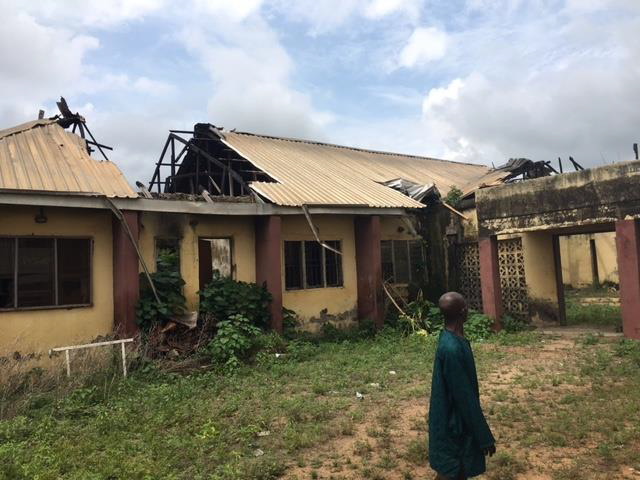
A new report detailing the sustained attack on Christian communities by Fulani herdsmen in Nigeria’s central state of Benue concludes that the number and ferocity of incidents is evidence of ethnic cleansing.
Further, signs of ethnic cleansing on Christian communities “are likely to become increasingly evident” in light of a Fulani leader’s threat that the herdsmen will need to “defend their rights” after a ban on grazing was implemented earlier this month.
These are the findings in ‘Nigeria: Benue state under the shadow of herdsmen terrorism’, commissioned by Christian charities Open Doors International and Voice of the Martyrs Canada, which catalogues crimes committed against Christians by Hausa-Fulani herdsmen between January 2014 and August 2017.
Benue is a predominantly Christian state in Nigeria’s Middle Belt, where thousands of Christians have lost their lives in recent years in non-Boko Haram related violence.
The grazing ban, which came into force on 2 November, was seen as a notable victory in combating the atrocities of the herdsmen after it was passed in May. Contravening the law could lead to five years in prison and a fine of one million Nigerian naira (US$2,800). The law can also be used against herdsmen carrying firearms or damaging farmers’ crops.
The October press statement by the president of the Fulani advocacy group, Miyetti Allah Kautal Hore, said the herdsmen would “defend their rights and lifestyle”.
The study claims that violent conflict in the state is “religiously motivated” and “a planned persecution of Christians by Hausa-Fulani Muslim herdsmen”. It draws its conclusion from the volume of “killed Christians, the destruction of their properties, the burning of churches and on gender-based atrocities against Christian women and children”.
It also claims government complicity in the violence, pointing to their “failure” to stop the attacks or bring the perpetrators to justice.
The report does not dismiss other suggested reasons why the herdsmen are drawn into conflict – their “innate aggressive nature”, their desire for economic and political power, and environmental factors like the desertification of the Lake Chad Basin, which drives the herdsmen to seek out new grazing opportunities for their cattle – but its authors say their evidence favours religious motivation.
The study notes that the problem for Christians in the Middle Belt stretches back more than two decades, and that the continued violence and the inaction of the government suggests “a deliberate agenda, championed by the Hausa-Fulani Muslim herdsmen, to occupy an area considered as being dominated by one ethno-religious group”.
As in a similar study, published in 2016, of violent conflict in neighbouring Nasarawa state, the ideology linked to the Fulani invasion of Benue is based on the understanding that “Komai na Allah ne. Ko wane fili na Allah ne, ba naku ba, ba na kafirai ba, na Allah ne”, which translates as “Everything belongs to Allah. Every piece of land belongs to Allah and not you; it is not for you infidels but for Allah”, states the report, which says this gives religious justification for the use of terror tactics and jihad.
Researchers described as “brutal” the “emotional accounts of violence given by the victims [which] sometimes fail to transmit the true extent of the atrocities committed”.
Parallels were drawn between the Hausa-Fulani herdsmen and Boko Haram – both “Muslim, their victims overwhelmingly Christians and non-Muslims. They cry ‘Allahu Akbar’ [Allah is the greatest] during their attacks and leave horrendous atrocities in their wake”.
The “porous” Nigerian border is blamed for allowing in herders from other countries like Mali and Chad who, the report suggests, collaborate with jihadists and terrorists, “aiming to occupy Christian territory in fulfilment of long years of waiting with an ambitious Islamic agenda”.
The report claims the “sheer number of atrocities [carried out by Hausa-Fulani herdsmen] would not have been possible without a motivating ideology and a conscious deliberate plan to permanently evict indigenous Christians from their ancestral homes”. According to victims, security officials and senior members of the government, the Fulani are involved in smuggling arms into Benue.
According to the report 4,194 Christians were killed, 2,957 injured and 30 churches destroyed or damaged in Benue between January 2014 and December 2016. An update to the report lists a further 139 Christian men, women and children killed in 2017.
The report also chronicles the torture, rape and abduction of women and children.
Experts say violence in Nigeria’s Middle Belt has been responsible for more deaths than Boko Haram and shows no signs of abating.
Nigeria is 12th on the Open Doors 2017 World Watch List of the 50 countries where it is most difficult to live as a Christian.